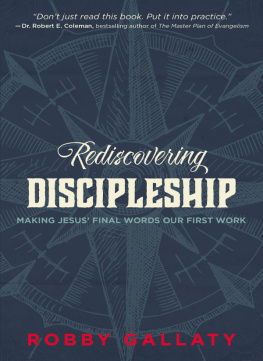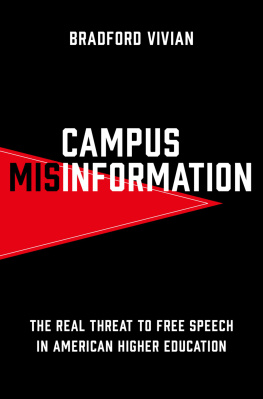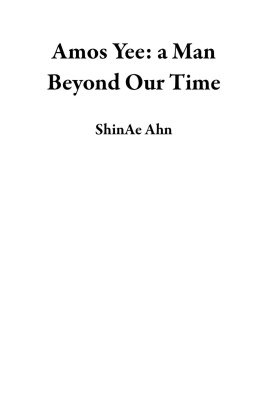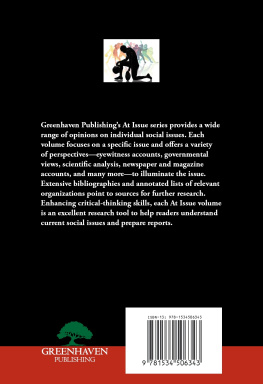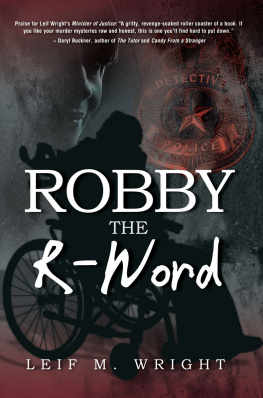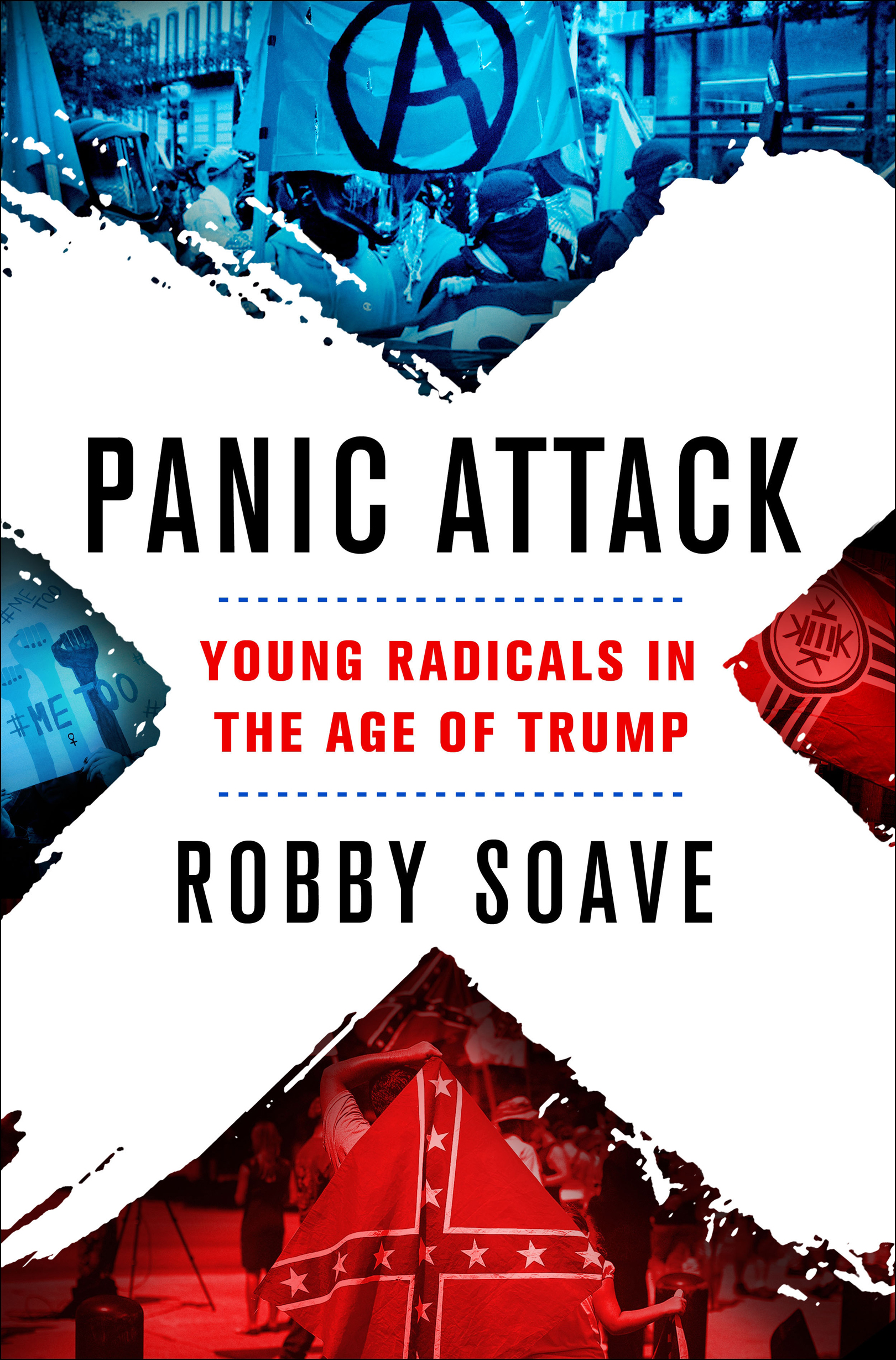The author and publisher have provided this e-book to you for your personal use only. You may not make this e-book publicly available in any way. Copyright infringement is against the law. If you believe the copy of this e-book you are reading infringes on the authors copyright, please notify the publisher at: us.macmillanusa.com/piracy.
This is a roundup
This is a low-flying panic attack
Radiohead, Burn the Witch
O n November 4, 2008, I was a college junior working as an assistant editor in the offices of the Michigan Daily, the University of Michigans primary student newspaper, when Barack Obama was elected president of the United States. As a libertarian who opposed big government and the Iraq War with equal fervor, I hadnt felt positively about Obama or his rival, John McCain, and was thus disinterested in the outcome.
But at UM, I was almost completely alone on that front: Obamas landslide victory provoked campus-wide celebration. An impromptu band formed on the Diag, the campuss main public square, and played the national anthem. Hundreds cheered Yes we did! and Go-bama! Students flooded the streets of Ann Arborincluding many of my colleagues at the left-leaning newspaper.
One student, a young woman, summed up the general sentiments of a campus that felt like its own political activismrallies, voter registration drives, campaign grunt workplayed at least a small role in Obamas victory. She told a Daily reporter, I feel this is the greatest moment of our lives.
Eight years later, America elected Donald Trump to be its next president. No one danced or sang at Michigan, though many shed tears.
The night of the election, as Trumps victory became evident, the energy drained from the Dailys typically convivial newsroom. The mood changed from tipsy to holy shit, according to Emma Kinsey, a senior news editor and later editor in chief of the Michigan Daily. Literally and metaphorically sobered by the results, the editors dispatched reporters to cover the student reaction on campus. But the only thing to write about was everyones overwhelming sadness.
Everyone was just upset, Kinsey told me. My roommates were crying. Some classes the next day were canceled. Then campus Republicans were pissed that classes were canceled, which is valid. It was a weird time.
That night there was some sort of mourning, Kinsey continued. Then there were a bunch of protests the next day. After that, there were many protests across campusconstantly, it felt like.
A similar thing took place at other campuses. A day after Trump won the presidency, left-leaning professors at such lofty institutions as Columbia and Yale postponed midterms, or made them optional, in order to give students time to heal. The Cornell Daily Sunthe student publication of Cornell Universityinvited members of the community to attend a public cry-in. The University of Michigan provided its students with coloring books, Play-Doh, and Legos, while the University of Pennsylvania made small animals available for cuddling.
There were actual cats and a puppy there, Penn student Daniel Tancredi told the College Fix. The event as a whole seemed to be an escape from the reality of the election results.
The weekend after the election, Alex, a student at Reed College who identifies as bipolar, black, and queer, posted a message on Facebook asking students to email the administration and demand Monday off because students of color and other marginalized students need a day to rest classes should be cancelled tomorrow and also there should be no work due tomorrow.
Trumps victory came as a shock to many Americans on the left, on the right, and in the middle of the political spectrumincluding the author of this book, whose own politics dont fit neatly in any one spot. But for young progressive activists, the election wasnt just a surprise or a disappointment: it was a declaration of war, an act of outright violence, a hate crime.
It really is their 9/11, said Laila, a twenty-six-year-old Muslim woman and political activist, recalling the emotional impact of the election on Generation Zan age cohort whose members were for the most part born after the events of September 11, 2001. Not that Im attempting in any way to equate the loss of so many precious lives to an individual that was elected to office, she added.
Still, the comparison is illustrative. According to leftist activist members of the millennial generation (birth dates 19802000) and Gen Z (birth dates post2000), the election of Trump was psychologically scarring on an order of magnitude resembling the deadliest terrorist attack in American history. In fact, in the immediate aftermath of Trumps victory, countless students at some of the most elite college campuses in the country complained that they were suffering from a kind of self-diagnosed post-traumatic stress disorder.
It was traumatizing, Juniper, a nineteen-year-old who transitioned from male to female and attends the University of California, Berkeley, told me. Every time I realized that someone I knew voted for Trump, it was sort of a personal attack, or at least it felt that way.
Yet it would be a mistake to think young progressives did nothing but sit around and cry about Trump. Far from it. Leftist activism, on college campuses and elsewhere, is now enjoying a considerable resurgence. This resurgence began at least some years before Trump captured the White House, and it can trace its roots to the 2011 Occupy Wall Street movement, which started as a popular demonstration against economic inequality before degenerating into a series of smaller, zanier protests. (Echoes of the Bush-era Iraq War protest movement are present as well, though Trumps confused, occasionally constrained foreign policy may have prevented the anti-war movementwhich prematurely dissolved around the time Obama won a Nobel Peace Prizefrom properly reconstituting itself.)
For a variety of reasons, including the growing power of social media, revised federal guidelines from the Education Department that reward squeaky wheels, and sheer administrative capitulation, activists enjoy considerably more power on college campuses in the 2010s than they did in the 2000s. College is where their influence is concentrated, but they would like to control the conversation everywhere else as well. In this regard, the election of Trump was merely an intensifier: voters in Pennsylvania and Michigan may have kicked the hornets nest, but the hive was already in motion.
In the political realm, the most energized contingent of the Democratic Party is the Democratic Socialists of America (DSA), which is pushing the party to move toward Bernie Sandersand beyondon a variety of issues: Medicare for all, free college tuition, and a federal jobs guarantee, among others. Todays young people grew up well after the Soviet Union ceased to exist, and thus they never came to view socialism as an existential threat. Socialism is all the good stuff they would like the government to provide: universal health care, a high minimum wage, and so on. For Democratic Socialists, getting rid of Trump isnt going nearly far enough, since Trump is just a symptom of the disease thats ailing Americacapitalism.
If Trump got impeached tomorrow, peoples lives would improve, but wed still have to work, wed still have capitalism, wed still have imperialism, Alex Pellitteri, an eighteen-year-old college freshman and cochair of New York Citys Young Democratic Socialists, told me in an interview.


